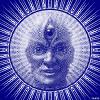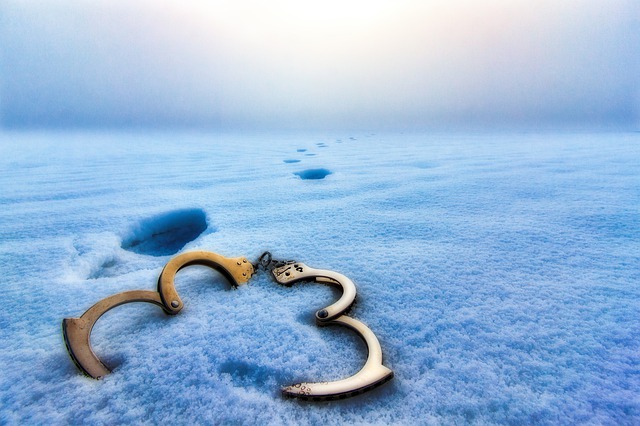 Submitted by Kartr on
Submitted by Kartr on

Image by Johannes Plenio from http://Pixabay.com
As we journey through the path of self-awareness, one of the questions that often comes up is how much of our lives and actions are dictated by destiny and how much by our conscious choices. Are we the masters of our own fate or mere puppets of a bigger schema of life unfolding through us? Over the years, there has been a spectrum of viewpoints expressed on this by diverse philosophical schools of thought. The two prominent, and diametrically opposite, views being Determinism (everything is pre-determined) and Free Will (we have complete freedom of choice). Broadly speaking, ancient Eastern philosophies have tended to lay greater emphasis on Determinism, while there’s been bigger support for Free Will among modern libertarianists. The ascent of individualism in modern society has furthered the notion that we create our own reality – thereby shoring up the concept of Free Will. In this article, I would like to examine the case for each of these notions and wish to draw some conclusions that can hopefully better support us in our own personal journeys.
Determinism represents the view that every event, including human cognition, decision, action, and behavior, is causally determined by an unbroken chain of prior occurrences. In its extreme version, it suggests that human beings may have no means to change the future course of events. Even though this thought sounds paralyzing, it may be grounded in more truth than we may commonly accord it. From a biological approach, there’s the role of the genetic code – the DNA carries the entire history and the future of any being. The small seed of a tree already contains all the characteristics of the full-grown tree. From the standpoint of the spiritual philosophy of karma, human beings are primarily acting out the effects of their past karma. Every action is preceded by a conscious thought and every conscious thought is preceded by a subconscious conditioning that makes us have the thought in the first place.
Free Will on the other hand espouses the existence of our rational agency through which we can exercise control over all our decisions and actions. Free Will also implies that the universal laws of nature or any omnipotent force does not exert any power over individual will and choices. Besides our intuitive belief that each of us has the ability to take independent decisions and actions, there are enough examples of an individual’s ability to create their own destiny through vision, focus, talent and commitment. Our personal experiences may also support the view that we always have a choice, and the choices we make determine the future we experience. We choose the career we want to pursue, decide on the food we want to eat, determine the extent of hard work we put in our efforts, have the freedom to choose our leisure activities, and so on.
Addressing the debate between Determinism and Free Will thus requires understanding the relationship between cause and freedom, and examining whether the laws of nature are causally deterministic of our actions. The working of the entire universe is governed by several laws of nature (like the cycle of birth and death, karma, etc.) and destiny is nothing but these laws of nature unfolding – scientific and spiritual progress merely helps us better understand these laws. Now, the law of karma brings forth the truth that our motivations as well as experiences in the present are dictated by our cumulative stored karma of the past. Why, with the same stimulus, some people instinctively get angry and others don’t, why some children are predisposed to an ambitious drive while others are comfortable going with the flow and so on, may all potentially be pre-arranged in our karmic psyche. We are born with this karmic psyche and with every interaction with our environment, we continue to generate and store additional karma in that psyche. Each of our thoughts, volitions and actions is then dictated by this storehouse. To that extent, all our motivations, decisions and actions are a pre-programmed disposition, even though we may confuse them with free choice; our decisions in the present are at best an outcome of our conditioned will (and not Free Will) and significantly constrained by our hereditary and environmental limitations. Sri Ramakrishna Paramahansa, Swami Vivekananda’s teacher, explained it as, “man is like a cow tied to a pole with a rope, bound by the karmic debts and human nature, and the amount of Free Will he has is analogous only to the amount of freedom the rope allows.”
The above argument, based on the law of karma, strengthens the case for laws of nature being causally deterministic of our moment to moment future. Does true Free Will exist at all then? Free Will comes into play only when we are able to make a conscious choice of not being automatically governed by our conditioned responses. At any instant, what we experience maybe pre-determined, but how we react to it is where we have a real choice. Our ability to make a meaningful choice is determined by our level of mindfulness at that moment – how aware we are of our true identity and how connected we are with our inner consciousness. This universal consciousness that is alive inside each of us can be a doorway to examining every situation with a new awareness and in an open-minded way. To give potency to this intelligence, we need to learn to let go of our limiting mind and its conditioned responses and instead let our inner wisdom guide us. Committing to a path of self-realization- of greater mindfulness and equanimity- where we are not easily dragged into our habitual patterns, can support our journey towards developing greater freedom and Free Will. Living in the present and attentively observing every new thought or feeling as soon as it arises strengthens the practice. Swami Ramakrishna completes the above explanation by saying that “as one progresses on the journey of spirituality, the rope of freedom becomes longer” – allowing for greater access to authentic Free Will.
Thus, unless we take conscious steps to break out of its shackles, we could spend our lifetime just living out our pre-programmed volition, thoughts, actions and destiny. Paradoxically, the process of creating our own inner reality works best with learning to let go, living in the belief that whatever best needs to happen will happen. Concurrently, it requires us to recognize that with greater mindfulness, we become better attuned to creating such a reality. At its deepest, it is about letting our higher inner self express itself through us towards manifesting the reality that we were meant to create. This is the experience that sometimes exceptional achievers in creative fields like art, music, writing, and sports relate to – an experience of co-creating along with the universal intelligence. Lastly, I would like to believe that as humanity continues to evolve, we will likely grow in our levels of awareness with time – however, how centered and conscious we are while making every choice in the present may determine how enjoyable the journey becomes for each of us.
Rajiv Vij
http://www.rajivvij.com/2009/09/breaking-shackles-of-destiny.html
- 1241 reads